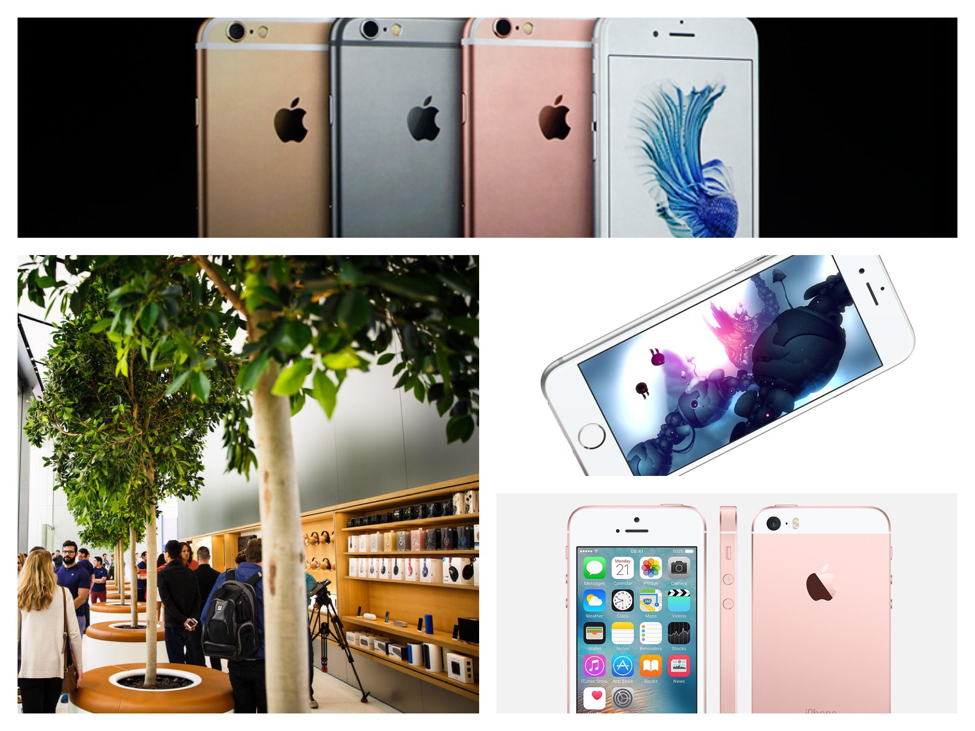But eventually, whether it’s 2016 or 2020, those iPhone sales will plateau or even go down. The rules of the game will change for Apple and they will need to make some hard strategic decisions on the future. The new customers who were shopping for their first smart phone will start to dwindle at some point and Apple will need to focus their big guns on poaching Android customers.
If Apple was to cut the price of their iPhone in order to steal more market share from Android in Europe or Asia you’d think that profitability would go down right? Not necessarily. If you could sell incremental new volume without investing in any new capital assets you would lower your overhead costs for all of your manufactured units. They could also potentially get better material pricing on components since their vendors also get that magical overhead absorption effect. If Apple was to cut $100 from their price that doesn't mean that they necessarily lose $100 of profitability. They probably won’t recoup the whole $100 in cost through.
However, if unit sales go up significantly, they could get more overall revenue than if they hadn’t cut their price. They are multiplying a smaller profit by more units. Would investors rather see $70 billion of profit per year at 40% gross margins or $100 billion of profit at 30% gross margins? I’d bank on the $100 billion.
But this is where the law of unintended consequences comes into the picture. Most companies struggle with forecasting how their customers will react to price changes. If unit sales don’t go up by the amount that Apple needs then it will be worse off than if it had never lowered their prices in the first place. Why trade $70 billion for $60 billion? It's very easy to lower your price but very difficult to ever take it back up. Once Apple pulls the trigger on a price cut, they could be stuck with it.
Then there is the whole brand reputation issue. Apple bills itself as a premium aspirational brand and has never gone after the low-price crowd. Would the picture of cheaper iPhones hurt Apple’s brand with it’s current status conscious customers? Could Apple pick up some customers and lose others?
The PC industry faced many of these same questions when decades of roaring sales came to a crashing halt in the early 2000’s. Ted Waitt at Gateway was unwilling to go below a certain point to trade margin for market share in the beginning. I know, I was there. Dell Computers, however, was willing to make that trade. Eventually Dell bought so much market share that Gateway found itself unable to compete with Dell’s material purchasing advantage. How could we match Dell’s PC prices when we were paying $70 for the same hard drive that Dell was paying $50 for? Ted Waitt came to realize that he had made a critical strategic mistake. But by that time, it was too late and Dell had too big of material cost advantage for Gateway to ever recover.
But Gateway was a company full of contradictions. They built stores from which you couldn’t take home a PC or get any customer service from. They paid lip service to protecting gross margins while trying to compete based on price and not design differentiation.
Unlike Gateway, Apple hasn’t made these mistakes. They’ve built a hardware business based on design, not price. If you want to stay in the iTunes ecosystem, you can’t buy from HTC or Samsung. Apple is paying a HUGE penalty for its iOS development compared to Samsung or Motorola who gets their operating system for free. Nothing in business is more expensive than people. This is one gargantuan cost that iPhones carry which Android phones don’t. However, this is one investment that is worth it’s weight in gold for Apple since it gives them what Gateway never had. Differentiation.
Also unlike Gateway, Apple invested billions on a bricks-and-mortar operation that also allowed customers to both take home new hardware and walk in for customer service. Gateway had the worst of both worlds with Retail. They paid the bill for all those stores and people yet they didn’t get any of the corresponding impulse sales. I saw the internal income statement for the retail group and it was horrific. The retail VP tried to make the case that people were going home and buying PCs over the phone so the phone group was getting credit for their sales. But after we shut down Retail the Phone sales never went down. Someone should write a book on how the Gateway Country Stores is exactly what you should not do to succeed in Retail.
I bring Retail up as another differentiator for the iPhone and another huge cost that the iPhone must shoulder that Android phones do not. Remember, nothing is more expensive than people. If Apple ever decides to start competing on price that will necessarily kick off some serious conversations about what to do about that very large and very expensive retail group. Do customers value the ability to drive to an Apple Store and talk to someone from Apple face to face? Could a carrier ever fill that role?
The margin vs market share question is a difficult one indeed. One that has ripple effects which would be larger than you would imagine. I think Apple has enough cushion in their iPhone margin that they could probably compromise a little and bring their prices down at some point. There would be no honor lost in doing that in a climate of slow to no growth. But they have enough differentiation not to go that route at all if they choose. I still see them competing for market share in the future by the way they’ve done it in the past. Offering something that you can’t get anywhere else.



 RSS Feed
RSS Feed